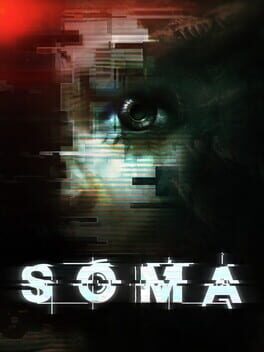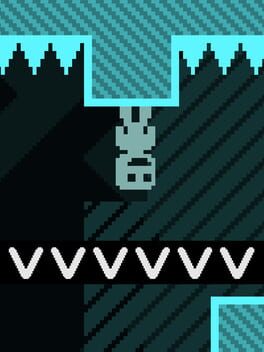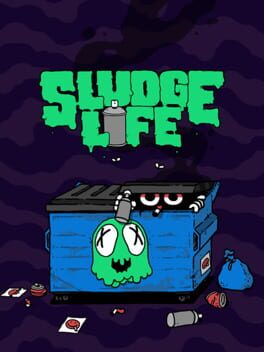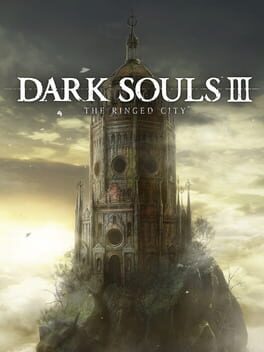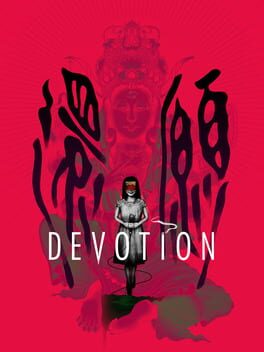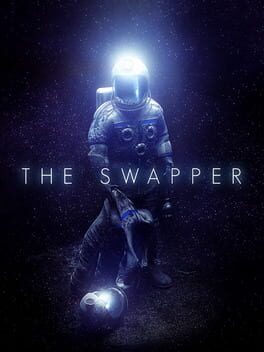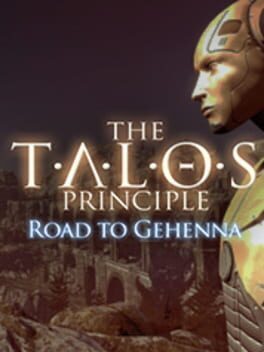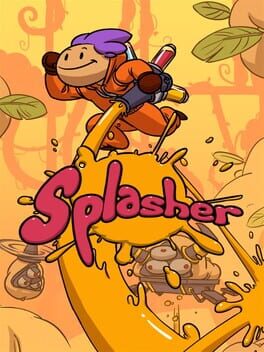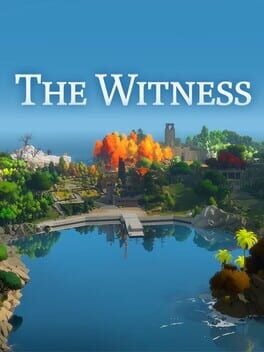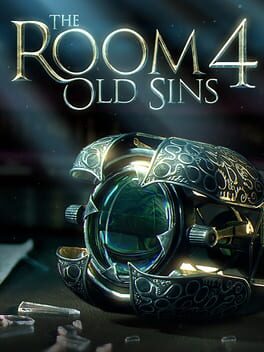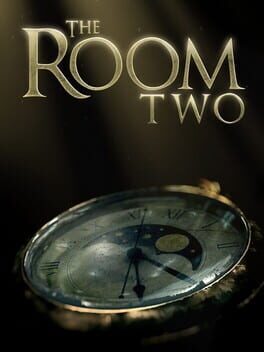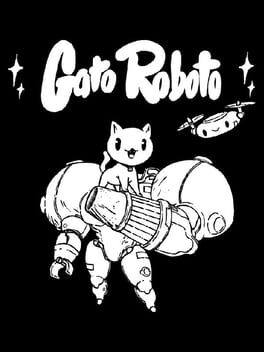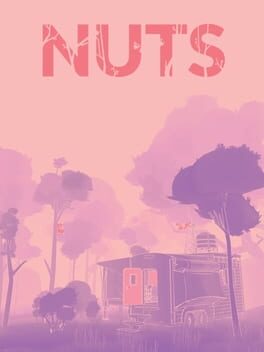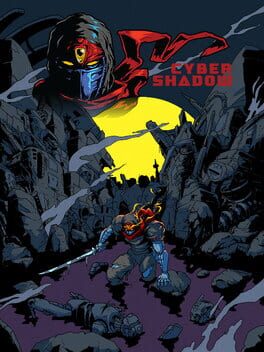stevecarverjr
2015
2010
2020
2019
2013
I wish this had just been a novel. Tom Jubert does an outstanding job here, using really interesting sci-fi concepts to explore themes of identity and consciousness. The characters are pretty weak, so I wasn't very emotionally invested like I was with the work he'd go on to do with The Talos Principle, but it's engaging and thought provoking nonetheless. Problem is, every time I get invested in this world and its story, a lackluster puzzle game gets in the way.
The puzzles aren't contextualized within the world or story at all, instead depending on your suspension of disbelief. No problem there. As long as the puzzles themselves wouldn't have any major impact on the plot, so that I could feel as though the game and I shared a mutual, unspoken understanding that they weren't actually a part of the story of the game, my suspension of disbelief could more than abide them. But without spoiling anything, at a certain point, a major story moment occurs specifically due to the events of a puzzle you have to complete. Not like the puzzle triggered something to happen in the world, I mean the specific thing you had to do to solve it leaves you in the state in which you need to be for this story moment to occur. A puzzle which, as is the case with all of the others in the game, has no reason whatsoever to exist in the context of the story. So a major event in the story is caused by a thing that the game has been asking you to pretend isn't happening up until that point. It's a shame too, because the moment in question is actually really great, and it's tainted by the feeling that the devs and writer cheated to make it happen.
There's that, and the fact that the puzzles themselves aren't great. They're not bad, some of them I found kinda fun, but outside of the game's core mechanic of creating clones of yourself and swapping your consciousness between them, there aren't any fun mechanics on display. There are boxes to move around, buttons to stand on, colored lights which inhibit your ability to clone or swap or both, and sections of floor which reverse gravity. Some puzzles were better than others, but nearly all of them felt the exact same. That said, it's a short game, so the saminess of them didn't have enough time to start feeling terribly monotonous. Just enough so that every time I had to do one, it felt like an interruption of what I was actually trying to experience.
I really wish this had just been a novel or a walking sim or something. The story is awesome, and I wish I'd just been able to focus on that instead of getting morsels of story in between mostly un-engaging puzzles. It's not a bad game by any stretch, and I would recommend it. It just feels like a big waste of potential.
The puzzles aren't contextualized within the world or story at all, instead depending on your suspension of disbelief. No problem there. As long as the puzzles themselves wouldn't have any major impact on the plot, so that I could feel as though the game and I shared a mutual, unspoken understanding that they weren't actually a part of the story of the game, my suspension of disbelief could more than abide them. But without spoiling anything, at a certain point, a major story moment occurs specifically due to the events of a puzzle you have to complete. Not like the puzzle triggered something to happen in the world, I mean the specific thing you had to do to solve it leaves you in the state in which you need to be for this story moment to occur. A puzzle which, as is the case with all of the others in the game, has no reason whatsoever to exist in the context of the story. So a major event in the story is caused by a thing that the game has been asking you to pretend isn't happening up until that point. It's a shame too, because the moment in question is actually really great, and it's tainted by the feeling that the devs and writer cheated to make it happen.
There's that, and the fact that the puzzles themselves aren't great. They're not bad, some of them I found kinda fun, but outside of the game's core mechanic of creating clones of yourself and swapping your consciousness between them, there aren't any fun mechanics on display. There are boxes to move around, buttons to stand on, colored lights which inhibit your ability to clone or swap or both, and sections of floor which reverse gravity. Some puzzles were better than others, but nearly all of them felt the exact same. That said, it's a short game, so the saminess of them didn't have enough time to start feeling terribly monotonous. Just enough so that every time I had to do one, it felt like an interruption of what I was actually trying to experience.
I really wish this had just been a novel or a walking sim or something. The story is awesome, and I wish I'd just been able to focus on that instead of getting morsels of story in between mostly un-engaging puzzles. It's not a bad game by any stretch, and I would recommend it. It just feels like a big waste of potential.
I really, really loved this. The puzzles are really tough, tougher than most found in the base game, but not in a bullshit way. Most puzzle games I've played, even the great ones, tend to ramp up difficulty by just adding more stuff. You start a puzzle, and there are so many moving parts that it feels as though the biggest challenge is just figuring out where to even start. But to my pleasant surprise, none of the ones present in Road to Gehenna were overwhelming like that. Most of them actually kept it pretty tame in terms of scale and the amount of tools you'd have at any given time. They just happened to be really well put together, exactly the kind of puzzle game I like.
I will say, and this is probably the one gripe I have with Road to Gehenna, that I wish they'd had a bit more variety. Like the base game, most all of the puzzles are about redirecting lasers and weighing down pressure plates. But where the base game managed to keep it pretty fresh throughout with some clever uses of other mechanics present in the game, I found that a lot of the puzzles in Road to Gehenna just felt samey (with some notable exceptions, of course). That said, they're still expertly crafted, I enjoyed solving all of them, and I could spend all day solving more. It's extremely satisfying to solve one and then just stroll through the area, admiring the web of lasers you've created and seeing how they all connect.
As far as the narrative goes, I think I enjoyed this as much as, if not more than the base game. This time around, instead of learning of the lives of people who lived in a previous civilization while having theological/existential discussions with one A.I., there are multiple A.I.'s to get to know. Each of them has a distinct personality, goals, hopes, and relationships with one another, as well as with you. As the game goes on, you learn more about them, have conversations with them, and see how they process the impact you're having on their world. The writers did a phenomenal job of fleshing each character out and making them feel real, and by the end of the game, I cared about and felt as though I personally knew each of them. And, like the base game, you can choose not to engage with the story at all if you prefer. On top of all of this, the amount content in this DLC is actually quite substantial. Not as long as the base game, but long enough that it could easily be a standalone title. If you enjoyed The Talos Principle, I'd say that it's basically essential that you play this.
I will say, and this is probably the one gripe I have with Road to Gehenna, that I wish they'd had a bit more variety. Like the base game, most all of the puzzles are about redirecting lasers and weighing down pressure plates. But where the base game managed to keep it pretty fresh throughout with some clever uses of other mechanics present in the game, I found that a lot of the puzzles in Road to Gehenna just felt samey (with some notable exceptions, of course). That said, they're still expertly crafted, I enjoyed solving all of them, and I could spend all day solving more. It's extremely satisfying to solve one and then just stroll through the area, admiring the web of lasers you've created and seeing how they all connect.
As far as the narrative goes, I think I enjoyed this as much as, if not more than the base game. This time around, instead of learning of the lives of people who lived in a previous civilization while having theological/existential discussions with one A.I., there are multiple A.I.'s to get to know. Each of them has a distinct personality, goals, hopes, and relationships with one another, as well as with you. As the game goes on, you learn more about them, have conversations with them, and see how they process the impact you're having on their world. The writers did a phenomenal job of fleshing each character out and making them feel real, and by the end of the game, I cared about and felt as though I personally knew each of them. And, like the base game, you can choose not to engage with the story at all if you prefer. On top of all of this, the amount content in this DLC is actually quite substantial. Not as long as the base game, but long enough that it could easily be a standalone title. If you enjoyed The Talos Principle, I'd say that it's basically essential that you play this.
2017
I'm 55% through, and I'm really loving this so far. Really tight, focused platformer. It's immediately evident while playing that the devs have a good understanding of the mechanics and that they know how to implement them in fun ways.
While the levels don't really vary too much visually (which is unfortunate), they all play very differently from one another, so it doesn't feel repetitive. It also has a really good difficulty curve, which is something I rarely see in games period, let alone indie titles like this. And even beyond that, the way it handles difficulty in the individual levels is great.
The levels themselves can be pretty challenging, but usually not to an extreme degree. If you want a real test of your skills, each level is riddled with optional challenges you can complete to obtain collectibles (in this case, workers to save) which I'm assuming are going to pay off in the end somehow. These optional bits can sometimes really get creative with the mechanics and use them interesting ways, and are also much harder than the non-optional parts.
I have very few complaints. I wish the levels were more visually distinct from one another (even though I do enjoy the way they look overall), and also a lack of boss fights. Not every platformer needs to have boss fights, of course, but I can't help but feel like they really could have made some interesting ones with the mechanics present in this game. Also it has a personal pet peeve of mine, where you're often asked to shoot diagonally, but there's no way to do this without moving in the direction you're facing, so it's supremely irritating in certain bits.
Those are all very minor gripes in the face of everything Splasher does right. I'm refraining from giving it a rating until I've completed it, but I'm having a ton of fun with this, and it has my glowing recommendation to anybody who enjoys platformers.
Update:
Finished it. Unfortunately, saving the workers does not appear to pay off in any meaningful way. You get an achievement for it and that's it. A bonus level or something would have been nice. Also the final level is actually pure misery, the kind where most of my deaths were due to mistiming something by a millisecond. Still, this was awesome. Really fun platformer with unique mechanics, and some excellent level design to go with it. Also seems like it would be really fun to try and speedrun, and it has built-in modes specifically for that. Definitely check this out if you're into platformers.
While the levels don't really vary too much visually (which is unfortunate), they all play very differently from one another, so it doesn't feel repetitive. It also has a really good difficulty curve, which is something I rarely see in games period, let alone indie titles like this. And even beyond that, the way it handles difficulty in the individual levels is great.
The levels themselves can be pretty challenging, but usually not to an extreme degree. If you want a real test of your skills, each level is riddled with optional challenges you can complete to obtain collectibles (in this case, workers to save) which I'm assuming are going to pay off in the end somehow. These optional bits can sometimes really get creative with the mechanics and use them interesting ways, and are also much harder than the non-optional parts.
I have very few complaints. I wish the levels were more visually distinct from one another (even though I do enjoy the way they look overall), and also a lack of boss fights. Not every platformer needs to have boss fights, of course, but I can't help but feel like they really could have made some interesting ones with the mechanics present in this game. Also it has a personal pet peeve of mine, where you're often asked to shoot diagonally, but there's no way to do this without moving in the direction you're facing, so it's supremely irritating in certain bits.
Those are all very minor gripes in the face of everything Splasher does right. I'm refraining from giving it a rating until I've completed it, but I'm having a ton of fun with this, and it has my glowing recommendation to anybody who enjoys platformers.
Update:
Finished it. Unfortunately, saving the workers does not appear to pay off in any meaningful way. You get an achievement for it and that's it. A bonus level or something would have been nice. Also the final level is actually pure misery, the kind where most of my deaths were due to mistiming something by a millisecond. Still, this was awesome. Really fun platformer with unique mechanics, and some excellent level design to go with it. Also seems like it would be really fun to try and speedrun, and it has built-in modes specifically for that. Definitely check this out if you're into platformers.
2016
This review contains spoilers
Way too obtuse. 90% of the puzzles completely hinge on whether or not you notice a very easy-to-miss detail. For instance, there's a section where the solutions to the panels can only be found by using the glare from the Sun or another light source. It's pretty cool, and once you figure out that that's what you're supposed to do, the puzzles in that section are really fun, but the game does virtually nothing to hint to you that you're supposed to be looking for these light glares. I only found out because I looked up a guide. This is the kind of puzzle game where I've used a guide for a pretty good chunk of the puzzles so far, and I don't feel bad about it at all. Almost every time I've looked up a guide for any given section in this game, I've looked at the solution, and asked aloud "how the fuck was I supposed to figure that out?". That's my experience thus far. The puzzles are mostly pretty fun, just really poorly conveyed. This is an incredibly frustrating game.
2018
Played the Steam version, which is called "The Room 4: Old Sins", and came out this year. This is definitely the best in the series so far (I say this not having played the VR entry). And that's saying something, because the other three are also fantastic. It's structured sort of like 3, except more open. You're always able to return to the overworld and access different areas, and there are a lot of puzzles which require you to swap between them. Pretty bold move on the part of the developers, but they're a talented bunch, so of course it was done expertly and never felt overwhelming. This also has the best story element of the series thus far. There's nothing I didn't love about this, go play it.
2013
2019
I beat this back in 2019 when it came out, took me just over four hours then. This time took like three hours. I really love this game. Nice and short, fantastic soundtrack (which is not on Spotify for some reason), fun platforming and combat, good secrets. Not much to dislike here. Excited to see what this team makes next.
2021
Good first person walking sim/detective game in the vein of Firewatch, though with more engaging gameplay.
I will say that the novelty of the gameplay loop kinda wears off after the first chapter, and that I wish there were a bit more variety. You do spend the whole game placing cameras around and following squirrels through the footage. That said, it's only like 2-3 hours long, so it didn't get tiresome for me or anything.
The story is good, though I do kinda wish it had a voiced protagonist. You're very much a non-character in this, and you have no name or backstory. I get that that might've put it too close to Firewatch, but it just felt off to me, being called by the game's actual main character over the phone and listening as she has one-sided conversations. Might've felt different if I'd ever gotten to hear more than just one character's voice, even if it weren't the player character. The story itself was good and kept me engaged, but it wasn't stellar or anything.
The visuals, of course, were great. And not just aesthetically. If the game had been in a more generic, multi-colored art style, I can only imagine how much of a nightmare it would have been to track these squirrels as they scurry about, running through bushes and climbing up trees. The stylized color palettes make sure that the squirrels stand out from their environments as much as possible.
On that note, the design overall is great. The way you interact with things in the world (mainly the camper in which you conduct your research) feels so natural. There's hardly any UI, just things which diegetically exist in the world that you use in intuitive ways, mostly only using LMB. Makes me wish more games were like that. I only wish the game weren't so repetitive, because I feel that it barely taps into the potential of its mechanics.
That said, I enjoyed this very much and would recommend it to anybody who's into this sort of game.
I will say that the novelty of the gameplay loop kinda wears off after the first chapter, and that I wish there were a bit more variety. You do spend the whole game placing cameras around and following squirrels through the footage. That said, it's only like 2-3 hours long, so it didn't get tiresome for me or anything.
The story is good, though I do kinda wish it had a voiced protagonist. You're very much a non-character in this, and you have no name or backstory. I get that that might've put it too close to Firewatch, but it just felt off to me, being called by the game's actual main character over the phone and listening as she has one-sided conversations. Might've felt different if I'd ever gotten to hear more than just one character's voice, even if it weren't the player character. The story itself was good and kept me engaged, but it wasn't stellar or anything.
The visuals, of course, were great. And not just aesthetically. If the game had been in a more generic, multi-colored art style, I can only imagine how much of a nightmare it would have been to track these squirrels as they scurry about, running through bushes and climbing up trees. The stylized color palettes make sure that the squirrels stand out from their environments as much as possible.
On that note, the design overall is great. The way you interact with things in the world (mainly the camper in which you conduct your research) feels so natural. There's hardly any UI, just things which diegetically exist in the world that you use in intuitive ways, mostly only using LMB. Makes me wish more games were like that. I only wish the game weren't so repetitive, because I feel that it barely taps into the potential of its mechanics.
That said, I enjoyed this very much and would recommend it to anybody who's into this sort of game.
This was very good. It's got a few levels I hated (my least favorite being Explodatorium), but it also manages the impressive feat of having both a water level and a slippery ice level that didn't make me miserable. It's also got some great bosses, a good soundtrack, and a story which I found really charming. A nice twist on the old "save the princess" plot. Not to mention it's got a perfect length. Took me just over 7 hours. I'd recommend this to anybody.
2021
Surprisingly great. Builds beautifully on the foundation laid by Ninja Gaiden. Starts simple and satisfying, gets more complex and interesting as it goes on, drip-feeding you new abilities.
The abilities are a lot of fun to use but take skill to use effectively, which means there's a really high skill ceiling. If you know what you're doing, you can fly through certain rooms. For instance, the plunge attack actually bounces you upward ever so slightly once activated, meaning you can use it as a sort of double jump if you time it properly. And once you unlock the dash, it practically becomes a whole new game. None of the abilities are all that unique, but they're all extremely well-utilized to the point where I didn't care.
One unique mechanic the game does possess is the gadgets. Gadgets are basically powerups you can find throughout the levels (and at certain checkpoints, if you've got the money) which all change the game in interesting ways, and only go away once you take a certain amount of damage. It's a fun way to incentivize you to play carefully, as well as add some variety to the gameplay.
Main issue I had was that I think the spacing of the checkpoints was far too unforgiving. It's already a brutally difficult game, and having the checkpoints spread so far apart makes it feel tedious at times (though it at least grants you the mercy of always putting one immediately before boss encounters). This problem becomes more amplified towards the end, where the game really takes the gloves off. I've seen a lot of complaints about the difficulty, but I have a feeling that most players would be fine with it if dying didn't mean having to redo such large stretches of gameplay over and over again. Doesn't add to the challenge at all, just serves to test the player's patience, as well as turn rooms and obstacles that were once fun to maneuver through into a chore.
Aside from that, though, I have no complaints. Excellent level design, great platforming mechanics, good length, fantastic bosses (seriously, some of the best bosses I've encountered in a game like this). This was a joy to experience.
The abilities are a lot of fun to use but take skill to use effectively, which means there's a really high skill ceiling. If you know what you're doing, you can fly through certain rooms. For instance, the plunge attack actually bounces you upward ever so slightly once activated, meaning you can use it as a sort of double jump if you time it properly. And once you unlock the dash, it practically becomes a whole new game. None of the abilities are all that unique, but they're all extremely well-utilized to the point where I didn't care.
One unique mechanic the game does possess is the gadgets. Gadgets are basically powerups you can find throughout the levels (and at certain checkpoints, if you've got the money) which all change the game in interesting ways, and only go away once you take a certain amount of damage. It's a fun way to incentivize you to play carefully, as well as add some variety to the gameplay.
Main issue I had was that I think the spacing of the checkpoints was far too unforgiving. It's already a brutally difficult game, and having the checkpoints spread so far apart makes it feel tedious at times (though it at least grants you the mercy of always putting one immediately before boss encounters). This problem becomes more amplified towards the end, where the game really takes the gloves off. I've seen a lot of complaints about the difficulty, but I have a feeling that most players would be fine with it if dying didn't mean having to redo such large stretches of gameplay over and over again. Doesn't add to the challenge at all, just serves to test the player's patience, as well as turn rooms and obstacles that were once fun to maneuver through into a chore.
Aside from that, though, I have no complaints. Excellent level design, great platforming mechanics, good length, fantastic bosses (seriously, some of the best bosses I've encountered in a game like this). This was a joy to experience.
